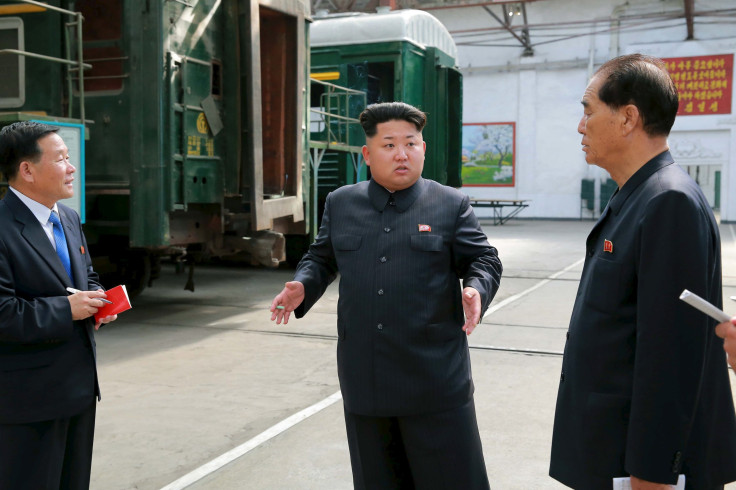North Korea Erects Long-Range Missile Launch Pad That Can Fire Largest Missiles Yet

North Korea has built a launch pad capable of firing long-range missiles that are larger than the communist country has used in the past, according to a South Korea-based government source.
A 50-meter-tall (164 feet) launch pad in Dongchang-ri, North Korea -- near the border with China -- was extended to 67 meters (219 feet), the source told the South Korean newspaper, Yonhap News. The project has been in progress since 2013. According to the source, North Korea could be planning to use to fire a long-range missile around a key communist party anniversary in October.
"We believe that the North will use the extended launch site in Dongchang-ri to fire a long-range missile longer than the Unha-3," the source said. "We think [the North] will carry out a provocation around the 70th anniversary of the foundation of the Workers' Party on Oct. 10."
South Korean military and intelligence officials told the newspaper they believe the launch pad could be used for missiles twice the size of the 30-meter-long Unha-3, which was used to put a satellite into orbit in December 2012. The U.N. Security Council restrictions prevent North Korea from carrying out launches using ballistic missile technology, but the country violated the ban insisting that the rocket carried a communications satellite.
In April, U.S. government officials said North Korea is capable of mounting a nuclear warhead on an intercontinental ballistic missile known as the KN-08, reported the Wall Street Journal.
“Our assessment is that they have the ability to put a nuclear weapon on a KN-08 and shoot it at the homeland,” said Adm. William Gortney, head of the U.S. Northern command, during a press briefing at the Pentagon.
Government sources told Yonhap News they also believe that a project to build a larger rocket is in the works. "We have detected signs of what appears to be the manufacturing of a long-range rocket at an arms factory near Pyongyang," a second government source told Yonhap News.
The government in Pyongyang has resisted negotiating with the U.N. Security Council about its nuclear program in past years. In 2009, talks involving North Korea and South Korea, China, Japan, Russia and the U.S. collapsed after North Korea walked out in response to United Nations' condemnation of a long-range rocket launch, reports Bloomberg News. As such, it is unlikely that North Korea will consider a deal similar to the one reached last week between Iran and the UN Security Council.
© Copyright IBTimes 2024. All rights reserved.












